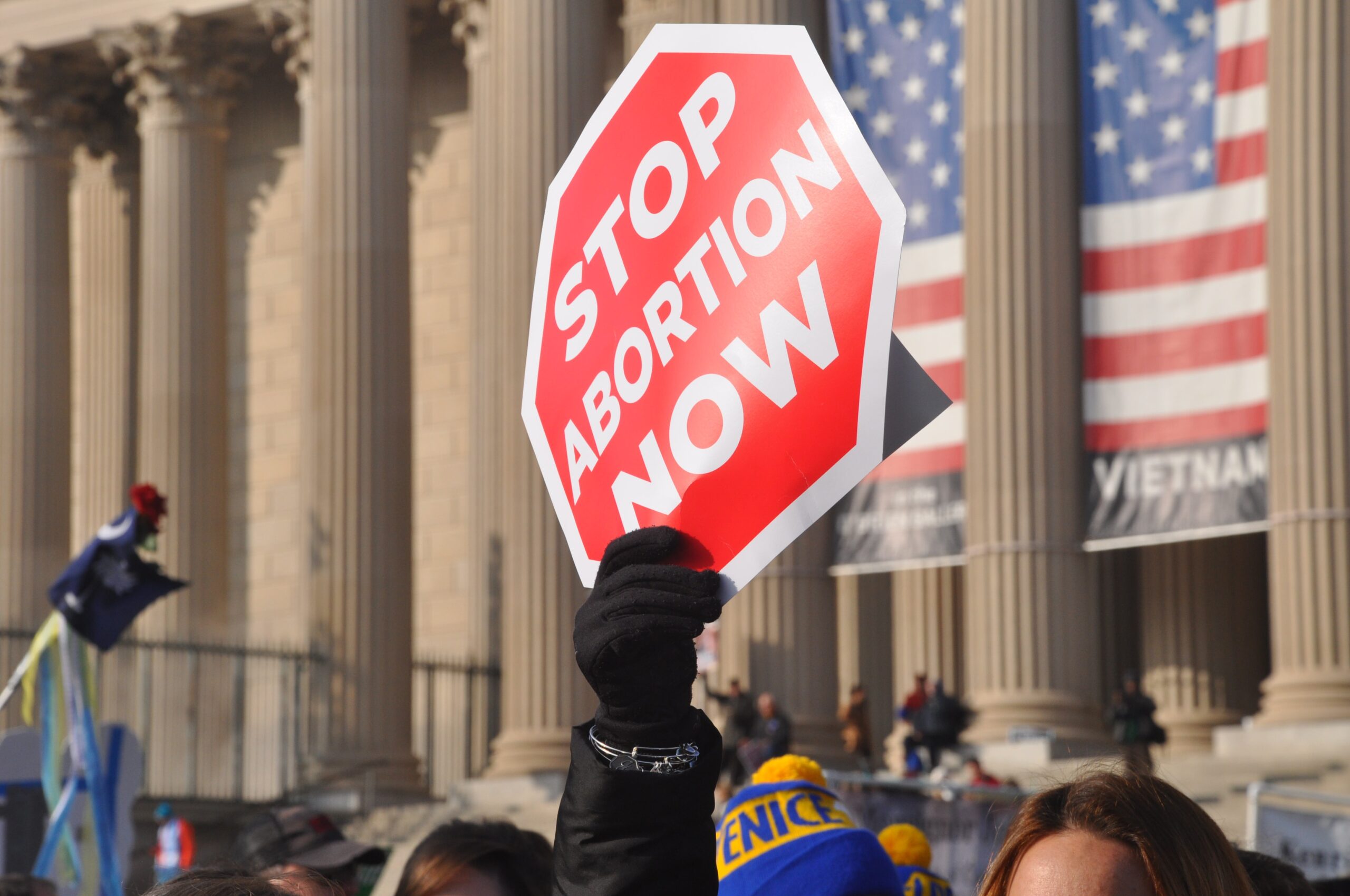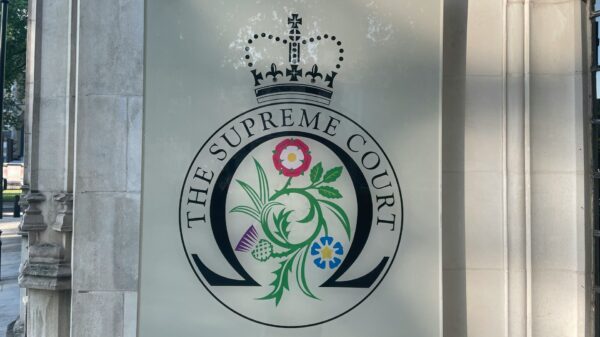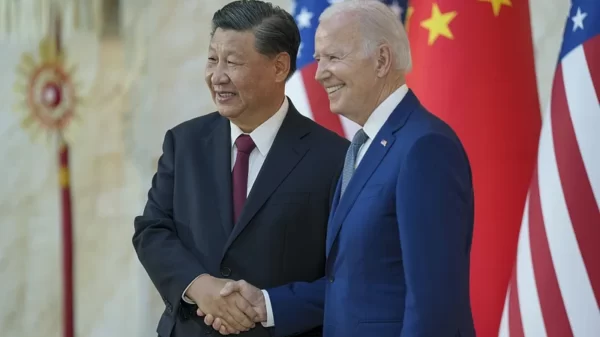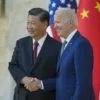Roar editor Conor Walsh writes about the recent US Supreme Court judgement overruling Roe v Wade and the impact on the use of precedent in judicial rulings.
Within the halls of one of the most famous buildings in the United States and clad in the black robes which have become synonymous with the administration of justice for over 200 years, Justices of the Supreme Court of the United States (SCOTUS) issue an average of 76 judgements per year. Most of these judgements go unnoticed by the vast majority of the domestic or global population, impacting only those who have a direct stake in the oft-niche area facing scrutiny.
However, occasionally there emerges a case which captures the interest of people from every corner of the globe. Dobbs v Jackson Women’s Health Organisation is precisely one of these cases. It combines an issue which has been hotly debated for years – abortion – and a decision that will directly affect many women across the US and indirectly affect almost everybody else. The case is more popularly referred to as ‘the decision overturning Roe’ – a reference to the famous 1973 case of Roe v Wade, which legalised pre-viability abortion. But what really is the impact of the case which has earned itself a place at the pinnacle of judicial precedent?
Leaked Draft Opinion
While the decision in Dobbs was officially released by SCOTUS on 24 June 2022, this case presented a unique and disconcerting challenge for the Court even before this, since the draft majority opinion that was leaked to the media and first reported by Politico on May 2. The significance of this was not lost on Politico when they noted, “no draft decision in the modern history of the court has been disclosed publicly while a case was still pending”. The investigation that ensued, however, appears to have lost its momentum with the Los Angeles Times reporting, “the Supreme Court won’t say whether it’s still investigating”.
Although understanding who was at the heart of this leak is significant, equally as important is learning why someone felt compelled to leak a draft opinion. Some fear that whoever leaked the opinion is a law clerk for a liberal justice who, fearing the outcome, “wanted to warn Democrats about the impending decision”. Others suggest the opposite – a clerk for a conservative justice, who felt there may be a danger that a justice might switch side or moderate the position, leaking to apply pressure on all conservative justices to continue to side with the draft opinion. The unfortunate reality is that, whatever the reason and whoever the perpetrator, this may possibly be “the worst security breach” in SCOTUS’s history. The “egregious breach” was “absolutely appalling”, according to Chief Justice John Roberts.
For a court which, since its inception, has been veiled in a degree of secrecy – for example, Federal Rule 53 prohibits photography and recording in the courtroom – this adds a further level of mystery. Additional damage is caused when one recognises the importance of the collegiate nature of SCOTUS. The leak dents trust and could cause a rift between justices. Justice Thomas stated that the loss of trust “changes the institution fundamentally”. This may impact the ability of justices to work together in future in a meaningful manner, a worrying prospect.
Ideological Shift
The Supreme Court, throughout its history, has shifted between liberal and conservative ideologies, and the modern court is absolutely no different. For the past number of years, the Court has become more conservative, and this was evidenced very clearly by the overruling of liberal-favoured rulings Roe v Wade and Planned Parenthood of Southeastern Pennsylvania v Casey (1992). To quote Justice Alito, “Roe and Casey must be overruled”.
Six of nine justices on the Court are now deemed conservative, three of whom were appointed by former President Donald Trump (Neil Gorsuch, Brett Kavanaugh and Amy Coney Barrett). This has certainly demonstrated the fact the justices are not free from politics. “If the public regards the court as partisan, what’s keeping the smart men and women on the court from doing the same?” asked Politico. The pros and cons of the court’s politicisation have and will continue to be debated, but what should be acknowledged is that the political nature of the court has a massive impact on the eventual decision.
It is likely, if not certain, that if Dobbs had been decided by a bench dominated by liberal justices, the judgement would have been quite the opposite of the one we have been presented with. The reality that must be noted is that, due to Supreme Court Justices retaining their position for life, the court will retain a conservative view for a long time, even if the political landscape of the US moves far from this. This is particularly the case since appointees have become younger, as each side aims to entrench their position on the bench. The last new Justice of the Trump era – Amy Coney Barrett – is still only 50 and so can be expected to still be ruling beyond 2050. We must prepare for a conservative agenda from SCOTUS for the foreseeable future.
Willingness to Overrule
While it’s clear that the most pressing concern arising from the decision in Dobbs is the impact it will have on some women’s ability to access abortion services, another more long-term concern revolves around the inclusion of the following passage in the concurring decision of Justice Thomas: “For that reason, in future cases, we should reconsider all of this Court’s substantive due process precedents, including Griswold, Lawrence, and Obergefell”.
The majority in Dobbs states, “[n]othing in [the Court’s] opinion should be understood to cast doubt on precedents that do not concern abortion“, yet Justice Thomas’ words suggest that the Courts’ future rulings may jeopardise the legal basis of certain rights within the US. Griswold v Connecticut (1965) protects peoples’ right to access contraception, Lawrence v Texas (2003) held criminalising sexual conduct between same sex adults to be unconstitutional and Obergefell v Hodges (2015) protects same sex couples’ right to marry. Each of these cases have altered the lives of millions of people but SCOTUS, through one line in the judgement of a conservative justice, has opened up the prospect of rolling back on these rights also.
This is a worrying concern for people who would be directly affected by some of these cases being overruled. People who before felt protected in their rights by a Supreme Court that held the principle of stare decisis (precedent in high regard) may now fear they will no longer have these rights protected. By overturning Roe, the Court has shown a substantial conservative slant and a clear willingness to overrule.
Overturning precedent is not an unusual procedure, however it is certainly not a decision to be taken lightly – or at least it shouldn’t be. Justice Thomas has, it would appear, thrown this theory out the window and provided an overview of the roadmap of the Court. This plan involves possibly overturning three precedents which have been cemented in US constitutional law for years. It appears that the only mystery which may remain here is when, not if, these cases will succumb to a fate similar to Roe.
What is the Impact?
‘The case overturning Roe’ has changed the landscape of the Land of Liberty, but has also impacted the attitude of populations around the world to the work of supreme courts. From lobbying groups to university students like us, everyone has become more cognisant of just how quickly a supreme court can alter the world around us.


















